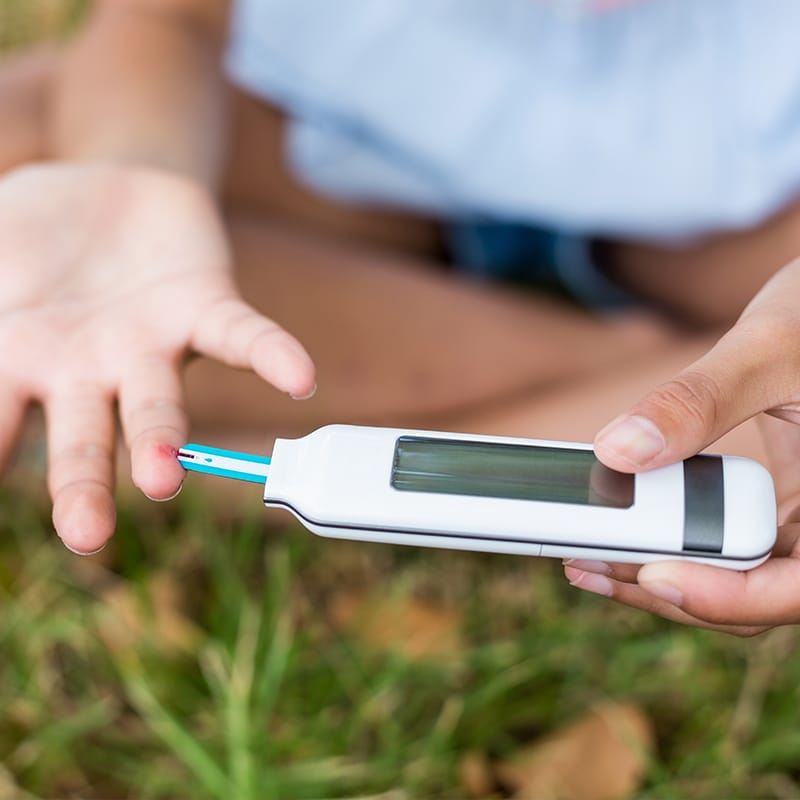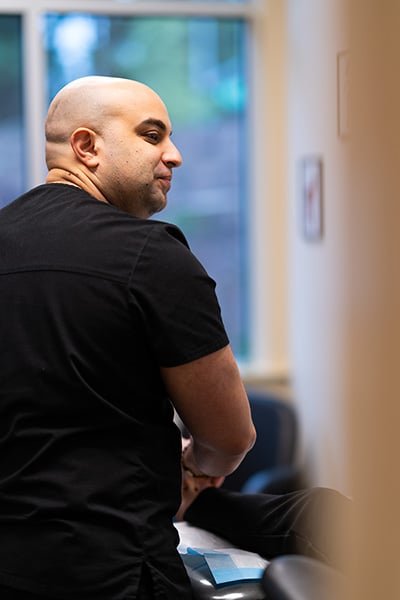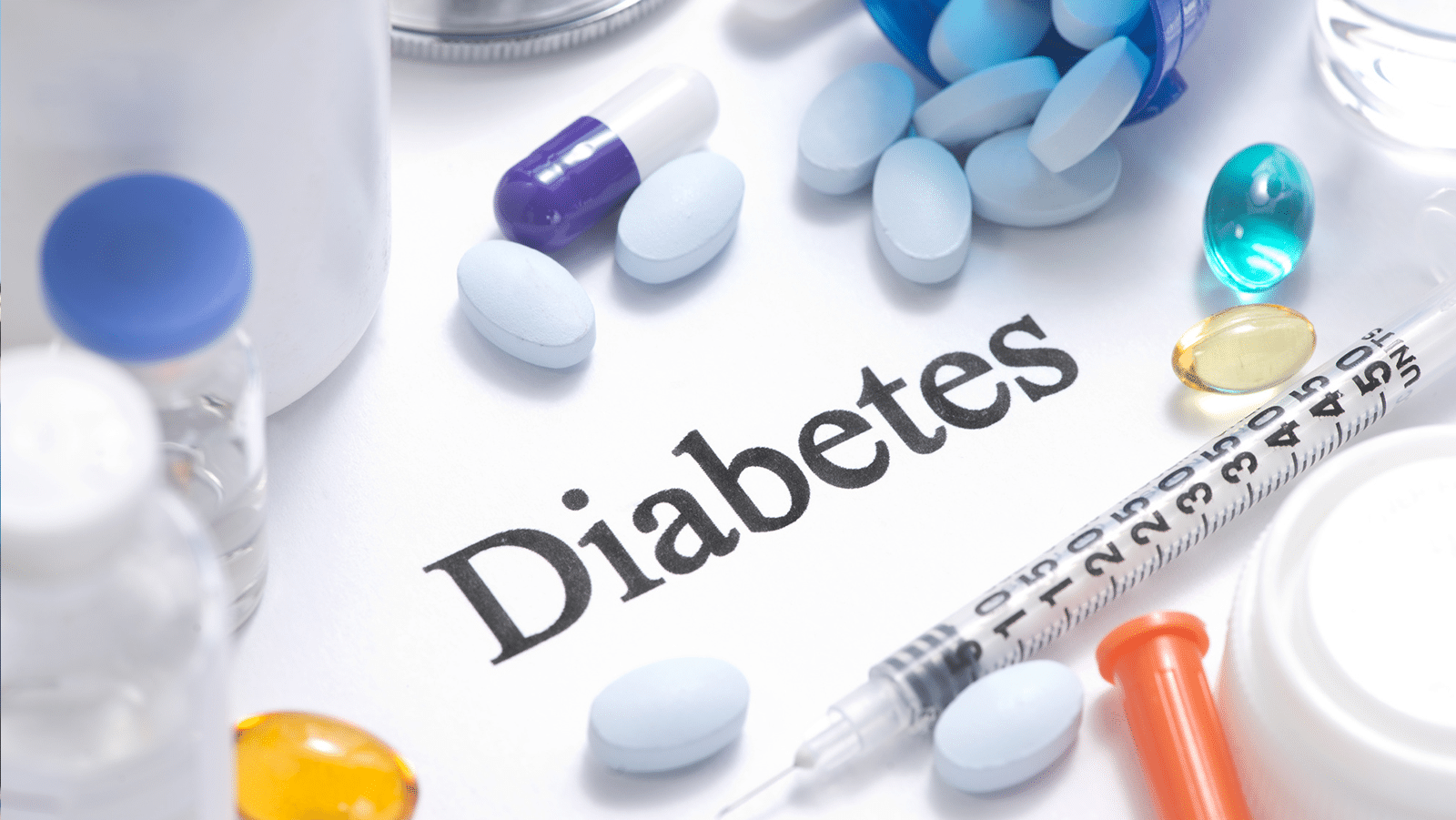Proper care for your diabetes

Are you prediabetic, or do you have diabetes? You're not alone. Roughly 10.5% of the population of the United States has diabetes, and it's estimated that over 21% are undiagnosed.
When you get diagnosed with diabetes or prediabetes it’s important to learn how to best care for your body. The spread of diabetes awareness has helped many people with this care, but there are still questions that patients have about what to do to maintain their health.
This is a resource for you to get a basic idea of what you should do to care for yourself. Whether you’re wondering about the differences between the types of diabetes, how to identify your diabetes symptoms, or how to manage different diabetic problems, we have the answers.
What Is Diabetes?
Diabetes is a disease. It occurs when your glucose levels (or blood sugar) is too high. Insulin from the pancreas supplies the body with insulin. This insulin is used to keep blood sugar manageable and it helps to transfer glucose to the cells so that it can be used for energy.
When the body is unable to create enough insulin, the glucose is unable to reach the cells and provide that energy. This means that the blood sugar remains high.
How to Care for Your Diabetes
When you’re diagnosed with diabetes, your life is going to change. You’ll have to pay more attention to your health, your diet, and your body in general in order to avoid further complications.
There are several ways that you can care for your diabetes aside from the obvious insulin treatments, but be sure to consult with your physician frequently to check your progress.
DIABETIC FOOT CHECKS

People with diabetes often develop numbness in their extremities. Feet are the most frequently affected part of the body.
It’s important to check your feet daily. Even a small check in the morning is enough if you’re in good health.
If you find scrapes, cuts, or blisters that won’t heal you should make an appointment with your doctor for an analysis. Unchecked, poor foot health and a lack of diabetic wound care in the feet can result in amputation.
Getting frequent diabetic foot checks at your doctor’s appointments is a good idea, as well as wearing well-fitting shoes, staying off of your feet when possible, and wearing orthopedic shoes. Make sure to attend to your diabetic nail care as you may not feel sharp or too-long toenails causing damage to your feet.
If you find that you’re dealing with problems in your feet, a specialist may conduct your foot checks to assess your options.
Diabetic Wound Care
Foot ulcers are common amongst diabetics. They’re open sores or abrasions on the bottoms of the feet.
Because diabetes impacts your wound-healing ability, you need to pay special attention to diabetic foot ulcers. Seeing a specialized foot doctor can help with this.
If you have neuropathy in your feet you may not immediately notice the wound. This is why diabetic foot checks are so crucial. You may notice visible swelling or drainage from the foot before you feel discomfort.
Seeing a foot doctor will help you avoid complications that come from diabetic foot ulcers such as infection or amputation. You should not attempt to treat an ulcer on your own.
Managing Nerve Damage

Between 60% and 70% of people with diabetes suffer from neuropathy or nerve damage. It’s important to get nerve damage assessments with you visit your specialist to see how your condition is developing.
A doctor may refer you for this kind of assessment. The specialist will perform a nerve conduction velocity test to evaluate the situation and see how it’s progressing. Getting these nerve checks can help you better manage your condition and know what parts of your body need more attention.
Healthy Lifestyle Changes
One of the first things that you can do on your own to help your diabetes is making healthy lifestyle changes.
Diabetes often results from poor lifestyle choices. Many people with diabetes also suffer from obesity, and the lifestyles associated with the two are similar.
Adjusting your diet is important. You need to cut back on sugary and fatty foods, as well as simple carbohydrates. Your doctor will likely give you a diet plan so make the adjustment period easy. Be sure to check your blood sugar regardless of your diet.
It’s also important to get more exercise when you have diabetes. You don’t need to go all-in as soon as you’re diagnosed, but you can lead a healthy and active lifestyle without ever setting foot in a gym.
It’s helpful to go for walks or jobs outside or do more low-impact activities such as yoga or pilates at home.
Your lifestyle is going to change when you’re diagnosed with diabetes, but you’ll feel better and improve your long-term outlook.
tabby's story: "'It's really nice to be able to come to one place for my diabetic needs."
Frequently Asked Questions on diabetes
Whether you have diabetes or prediabetes, or you have a loved one who has one of these conditions, you probably have some questions.
These are the most common questions that people ask about diabetes.
Diabetes comes in two primary forms, type 1 and type 2. There is also another common form of diabetes that’s temporary: gestational diabetes.
Type 1 diabetes is a form of diabetes that you can be born with. It’s an autoimmune condition that causes the body to not produce enough insulin.
Type 2 diabetes is developed over time. The body may not produce enough insulin, or it may not be capable of absorbing the insulin that is produced. Put simply, the difference between type 1 vs type 2 diabetes is primarily when it’s developed.
Gestational diabetes is temporary. It results from high blood sugar in someone who is pregnant and it goes away when the pregnancy is over.
You can identify diabetes by noticing several potential diabetes symptoms that include, but are not limited to:
- persistent thirst
- Fatigue
- Frequent urination
- Weight gain
- blurred vision
- poor healing ability
- frequent infections
If you notice these symptoms and you have not been diagnosed with diabetes it’s important to see a doctor.
The symptoms of prediabetes are similar to the symptoms of diabetes. They include:
- skin tags
- patches of darkened skin
- fatigue
- numbness in the fingers, hands, and feet
- poor focus
- poor sleep
- persistent hunger
Catching prediabetes early on can change your life. See a doctor right away if you notice these symptoms.
Diabetes, when untreated, can lead to serious health complications (including premature death). It can lead to heart failure, a need for amputation of the extremities, strokes, and kidney failure.
When treated, the risks associated with diabetes are minimized.
If you take care of your diabetes you will be able to lead a happy and healthy life. Diabetes is currently not curable, but maintaining a healthy lifestyle will help you keep your symptoms in check (and potentially reverse them) so your condition doesn’t limit you.
Prediabetes doesn’t have to lead to diabetes when it’s caught early. It can reverse through healthy lifestyle changes under the supervision of a doctor. This is why it’s so important to catch the symptoms early.
Diabetic shock isn’t a medical term, but it’s what people use to describe extreme hypoglycemia.
While normal hypoglycemia results in mild symptoms such as headaches or chills, diabetic shock can result in a loss of consciousness, double vision, or a diabetic coma if left untreated.
Many people carry snacks with them for this reason.
High blood sugar is most often caused by a diet heavy in sugar. In people with diabetes, not taking your medications or attending to your care will result in high blood sugar.
You may also develop high blood sugar from an inactive lifestyle or certain medical conditions.
Diabetes can be managed through a healthy diet. Keep portions small and avoid fatty or sugary foods.
Low carb and ketogenic diets are popular amongst diabetics. They also help with weight-loss and overall health.
Your Diabetes Is Manageable
With attention to your diabetes and frequent medical care, you can lead a healthy lifestyle. Your life will change. You’ll need to check your blood sugar, inject yourself with insulin, and be more attentive to your extremities, but there’s no reason that you can’t continue living your life as normal.
We aim to help ease pain and discomfort for those suffering from diabetes. We believe that foot care is important and that you don’t have to suffer.
If you’re a diabetic patient or a prediabetic patient in Washington, we have clinics for you. Visit us for a nerve damage assessment so that we can develop a treatment plan for you.





